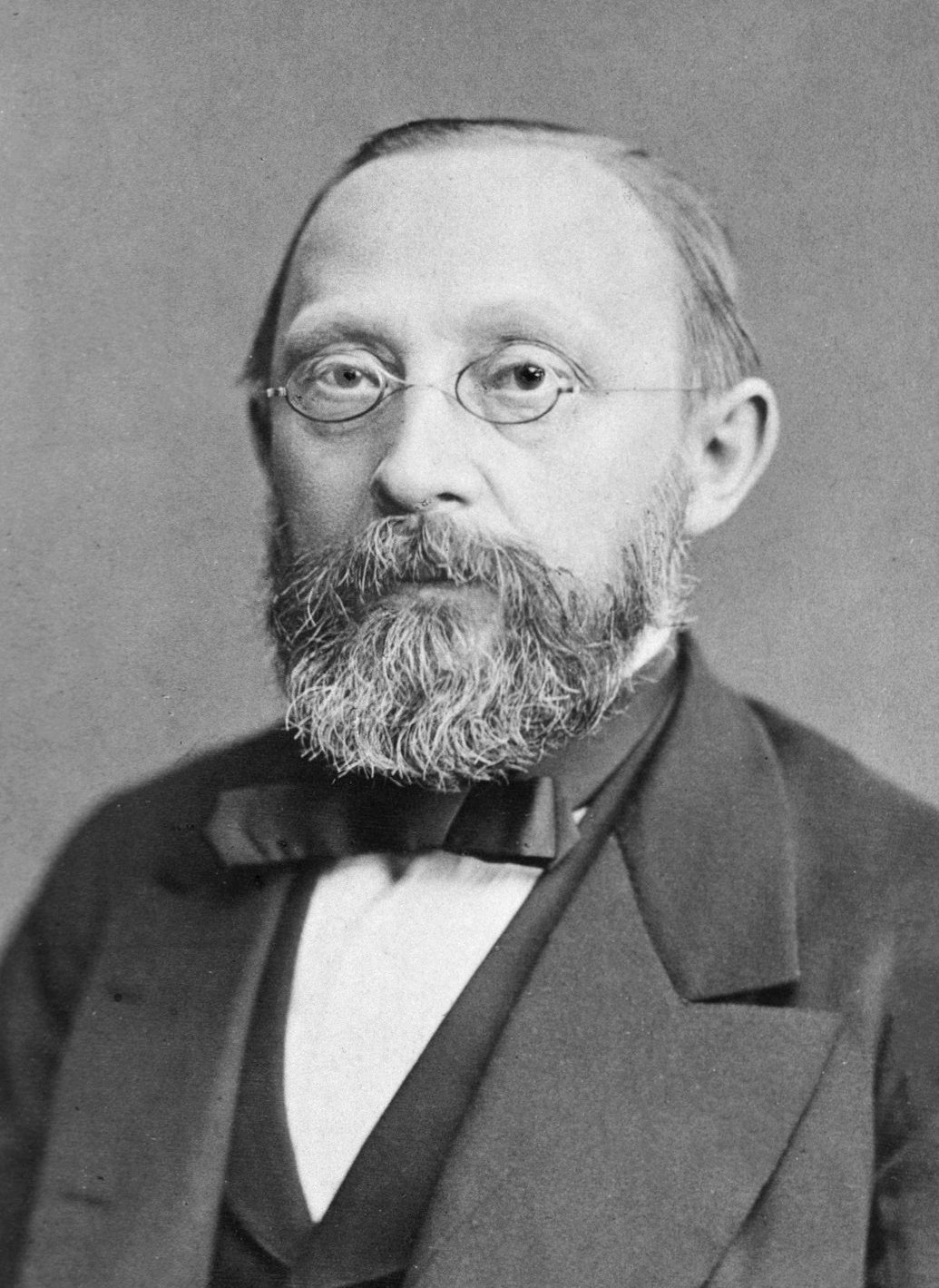Rudolf Virchow: The Father of Modern Pathology and Social Medicine
Rudolf Ludwig Carl Virchow (1821-1902) was a pioneering German physician, pathologist, and anthropologist whose work fundamentally transformed medical science and public health. Born on October 13, 1821, in Schivelbein, Pomerania (now Świdwin, Poland), Virchow’s early education was marked by academic excellence, leading him to study medicine at the Friedrich Wilhelm University in Berlin.
Virchow’s career began in the 1840s, a time when the field of pathology was still in its infancy. After earning his medical degree, he worked at the Charité Hospital in Berlin, where his keen observations and rigorous research began to challenge existing medical paradigms. One of Virchow’s earliest and most significant contributions was his development of the theory that cells, not tissues, are the site of disease. This marked a revolutionary shift from the humoral theory of disease, which had dominated medicine for centuries.
In 1855, Virchow published his groundbreaking work, Cellular Pathology, in which he famously declared, “Omnis cellula e cellula” (every cell stems from another cell). This principle emphasized that diseases arise at the cellular level and that pathological changes in cells are the cause of disease. Virchow’s cellular theory of pathology laid the foundation for modern medical diagnostics and treatments, influencing the development of oncology, immunology, and many other fields.
Virchow’s work extended beyond cellular pathology. He made substantial contributions to the understanding of thrombosis and embolism, describing the process by which blood clots form and travel within the body, leading to conditions such as stroke and pulmonary embolism. His meticulous studies on leukemia, a term he coined, helped differentiate it from other blood disorders and laid the groundwork for hematology.
In addition to his scientific achievements, Virchow was a fervent advocate for social medicine and public health. He believed that social factors such as poverty, poor living conditions, and inadequate education were significant contributors to disease. His investigation into a typhus epidemic in Upper Silesia in 1848 highlighted the impact of social determinants on health and led him to champion reforms in public health policy. Virchow’s advocacy for sanitation, hygiene, and access to healthcare helped shape modern public health systems and policies.
Virchow’s influence extended into politics and education. He served in the Prussian House of Representatives and later in the Reichstag, where he advocated for healthcare reforms and educational improvements. As a professor at the University of Berlin, he trained generations of physicians and researchers, spreading his scientific and social ideas.
Virchow’s interdisciplinary approach also included significant contributions to anthropology and archaeology. He founded the Society for Anthropology, Ethnology, and Prehistory, and his work in these fields helped establish the scientific study of human history and cultural evolution.
Despite facing resistance from some contemporaries, Virchow’s relentless pursuit of scientific truth and social justice earned him lasting recognition. He received numerous honors and accolades during his lifetime and remains a celebrated figure in the history of medicine.
Rudolf Virchow passed away on September 5, 1902, in Berlin. His legacy is enshrined in the principles of modern pathology and public health, reflecting his belief that medicine is not only a scientific endeavor but also a moral and social responsibility.
#RudolfVirchow #Pathology #CellularPathology #SocialMedicine #PublicHealth #MedicalScience #Thrombosis #Leukemia #Anthropology #MedicalHistory
